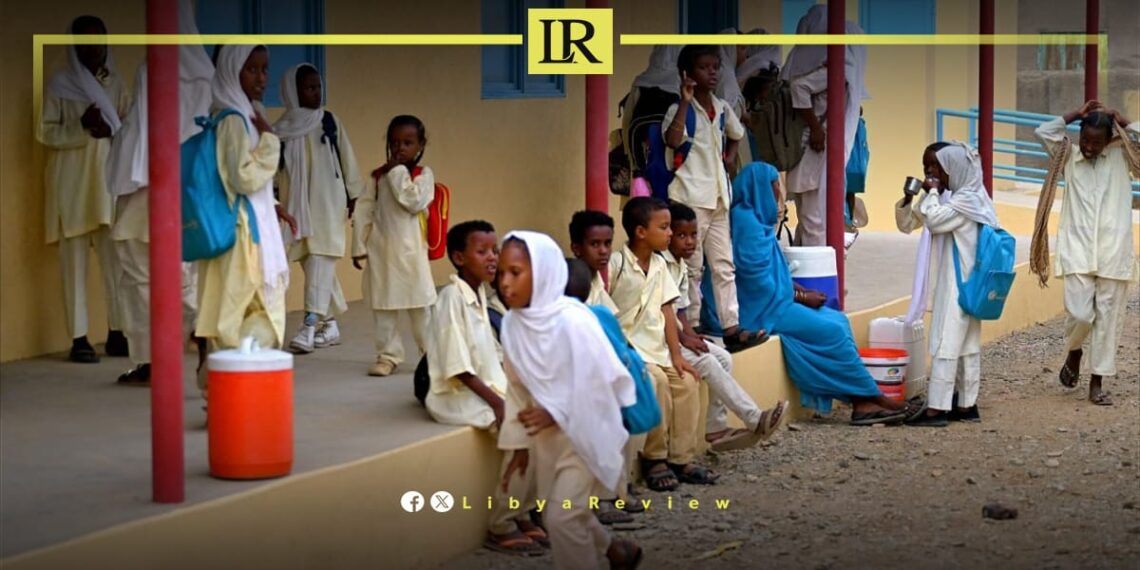Sudanese refugees in Libya have expressed deep concern over their children’s education following a new decision by the Libyan Ministry of Education. The ministry has ruled that foreign students, including Sudanese, must hold valid residency permits to enrol in public and private schools for the new academic year. The decision, which takes effect as schools reopen on Sunday, has left thousands of families fearing their children could be excluded from formal education.
The ministry issued a circular last week instructing all educational institutions not to accept any non-Libyan student without a residency permit valid for at least one year. Parents are also required to provide a written pledge to finalise residency procedures within three months. Failure to comply will result in students being suspended, a move that has sparked frustration among Sudanese refugee families.
Parents in Tripoli told Darfur24 that the cost of documents makes compliance nearly impossible. A Sudanese refugee, Ahmed Taha, explained that an adult passport costs 1,260 Libyan dinars, while a child’s passport costs 600. Residency fees can exceed 2,500 dinars, alongside fines and taxes. He said most families cannot afford such expenses.
A Sudanese teacher working in Libya revealed that over 3,000 Sudanese children are enrolled in schools across Tripoli, Misrata, Sabha, Ajdabiya, Benghazi, and Kufra. He noted that while the ministry allowed equal treatment last year, the policy has now shifted due to local pressure. The limited number of Sudanese community schools—only five in Tripoli and a handful in other cities—cannot meet the demand.
Parents like Umayma Hafez said they have been forced to sign legal commitments to maintain their children’s education, while others consider returning to Sudan despite ongoing conflict.
According to UNHCR, Libya hosts more than 313,000 Sudanese refugees, highlighting the scale of the education crisis affecting this vulnerable community.


